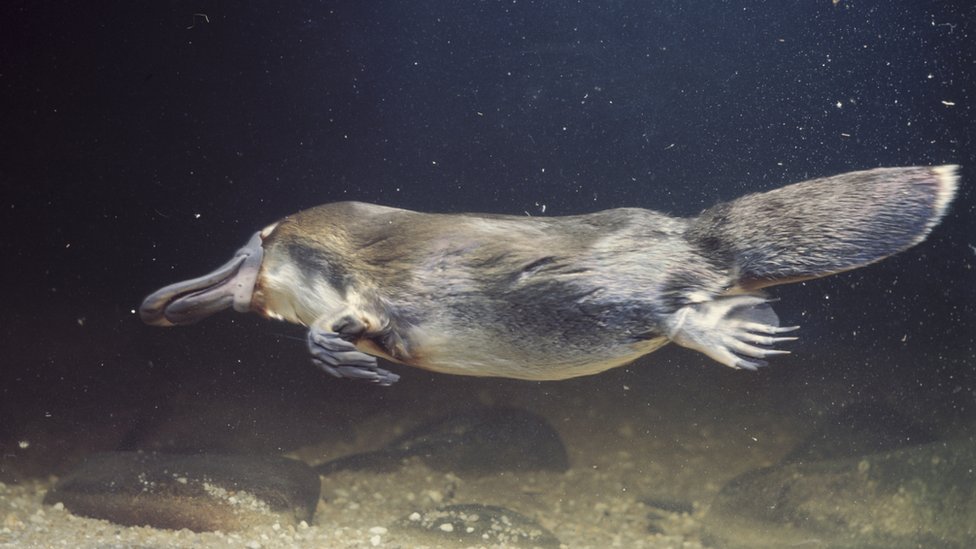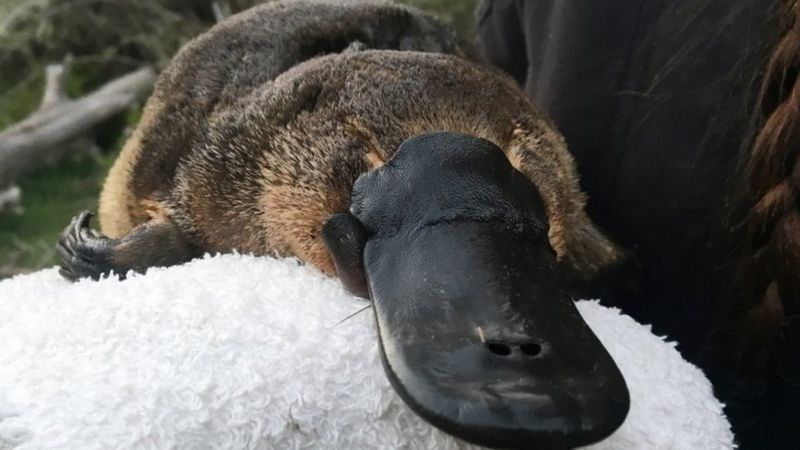The habitat of the platypus has shrunk by almost a quarter in just three decades, researchers have warned.
An egg-laying mammal known for its duck-like bill, the platypus is found in river systems in eastern Australia.
But human intervention in those waterways, bad droughts and introduced predators – among other things – have ravaged its habitats, scientists say.
The researchers and conservation groups have called for Australia to classify the species as nationally threatened.
The habitat loss amounted to 22% – or about 200,000 sq km (77,000 sq miles) – since 1990, according to the team from the University of New South Wales (UNSW).
“Protecting the platypus and the rivers it relies on must be a national priority for one of the world’s most iconic animals,” said lead author Professor Richard Kingsford.
“There is a real concern that platypus populations will disappear from some of our rivers without returning, if rivers keep degrading with droughts and dams.”
New South Wales had seen a 32% drop in platypus observations within the past 30 years, followed by Queensland (27%) and Victoria (7%), the research said. In some areas near Melbourne, however, the rate was as high as 65%.
The platypus is listed as “near threatened” on The Red List by the International Union for Conservation of Nature, but conservationists are hoping to force more action at federal and state levels in Australia.

Earlier this month, Victoria’s scientific advisory panel recommended that the state officially list the species as vulnerable.
Both the UNSW research and Victorian panel warned that climate change would only exacerbate threats to the species, especially from drought.
The office of Australian Environment Minister Sussan Ley told the Sydney Morning Herald that the government had already committed about A$1m ($731,000; £550,000) to safeguarding platypus ecosystems.
The call to list it as a threatened species would be considered, a representative told the newspaper.

